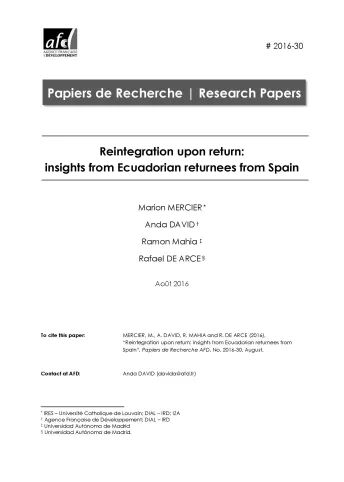Share the page
Reintegration upon return: insights from Ecuadorian returnees from Spain
Published on

Using the ECM2 survey data on Ecuadorian migrants returning from Spain, we investigate the determinants of reintegration upon return. We study how the migration experience, but also the before- and after-migration characteristics, correlate with migrants’ outcomes upon return. We adopt a broad conception of reintegration, considering jointly labor market-related outcomes that proxy for structural reintegration and subjective indicators that provide insights on sociocultural reintegration. The determinants of these two types of outcomes appear to be different: reintegration indeed encompasses multiple dimensions which cannot be captured by a single indicator. Our results suggest that return assistance programs’ efficiency in helping reintegration could be improved by (i) targeting, ex-ante, returnees who plan to launch their own business, and, ex-post, the most vulnerable workers (women, older returnees, unemployed), and (ii) facilitating the labor market integration of foreign-educated returnees. They also call for further research to better understand the consequences of these programs.
Useful Information
-
Authors
-
Marion MERCIER, Ramon MAHIA, Rafael de ARCE, Anda DAVID
-
Edition
-
30
-
Number of pages
-
24
-
ISSN
-
2492-2846
-
Collection
-
Research Papers
